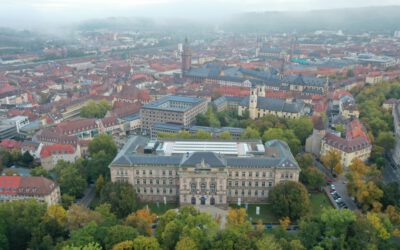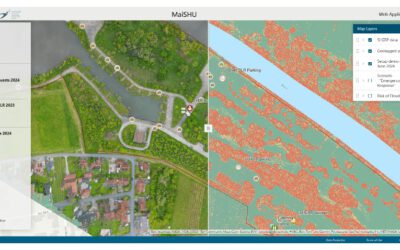We are glad to announce our next workshop report at the Department of Remote Sensing. On 11th November 2020, Dr. Christian Hüttich and Sebastian Förtsch (both Department of Remote Sensing, University of Würzburg) will talk about “The ESPE Project – Emission Sources from Satellite Data for an Improved Forecast of the Pollen Flight in Bavaria”.
Abstract
Currently, over 20% of adults and 15% of children and adolescents suffer from allergic-atopic Disease. In Bavaria, this comprises some 2 million adults and 300,000 children and young people. Among them are about 80 % of all allergy sufferers pollen allergy sufferers. These diseases caused total costs in Bavaria in 2013 of about 600 million euros. The aim of the Bavarian State Government is therefore a valid and practicable pollen count forecast, which is achieved both by a spatial resolution as high as possible and by an early prediction is characterized. The occurrence of allergenic pollen such as from grasses and trees can be predicted with different spatially numerical models based on weather and satellite data. The temperature sum-driven, species-specific model “SILAM” (model of the Finish Meteorological Institute) and the model COSMO-ART for example is based on climate variables (especially temperature) and rough distribution maps of selected species. SILAM currently has static grassland and forest maps in a spatial resolution of 1 km available. This is based on the idea that the emission sources of grass and birch pollen should be delimited. The prediction quality of this approach can be improved by current satellite-based input data. The goal of the ESPE project is to update the land cover map of Bavaria using the Sentinel-2 time series data. The focus is to generate a land cover map with information on dominant tree species.

Titles of presentation: The ESPE Project – Emission Sources from Satellite Data for an Improved Forecast of the Pollen Flight in Bavaria Presenters: Dr. Christian Hüttich and Sebastian Förtsch (Department of Remote Sensing, University of Würzburg)
Date: Wednesday, 11th November, 2020 Time: 10 – 11 am s.t. Place: Online Presentation language: English Slides: English









